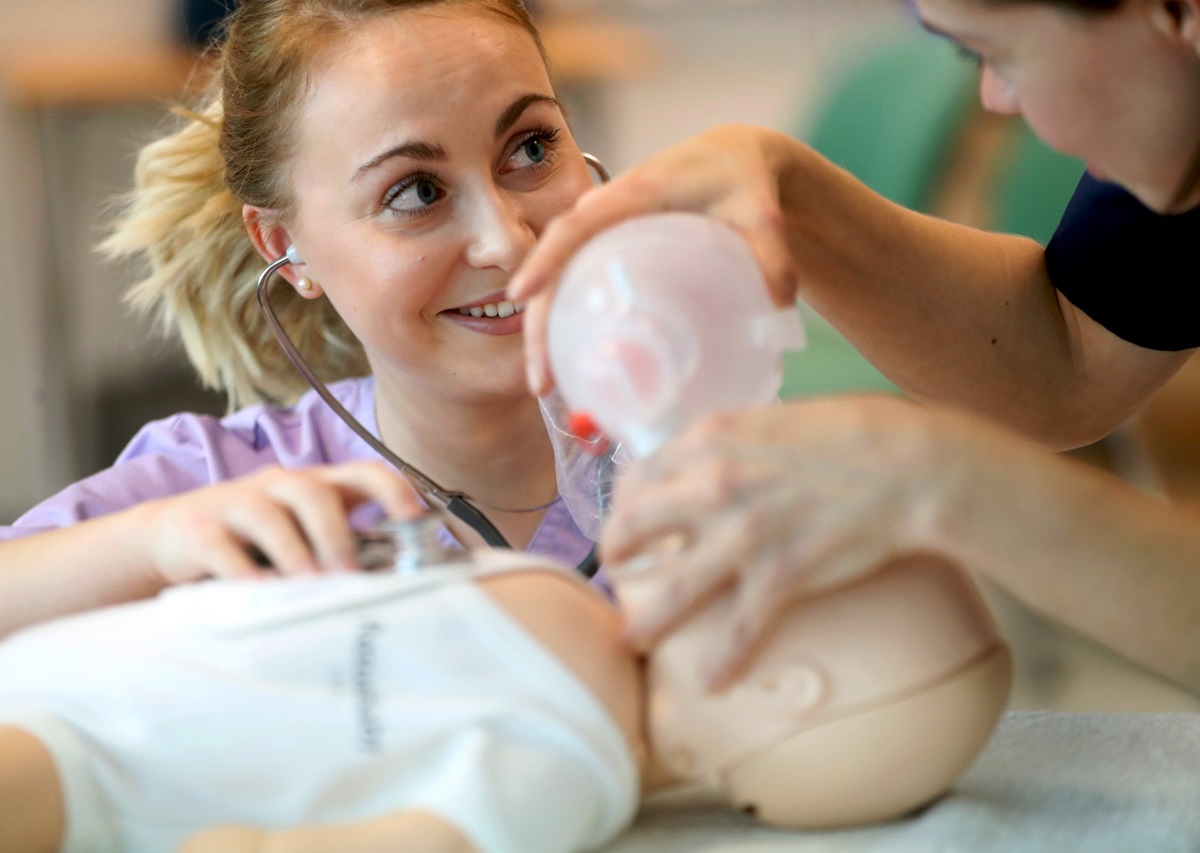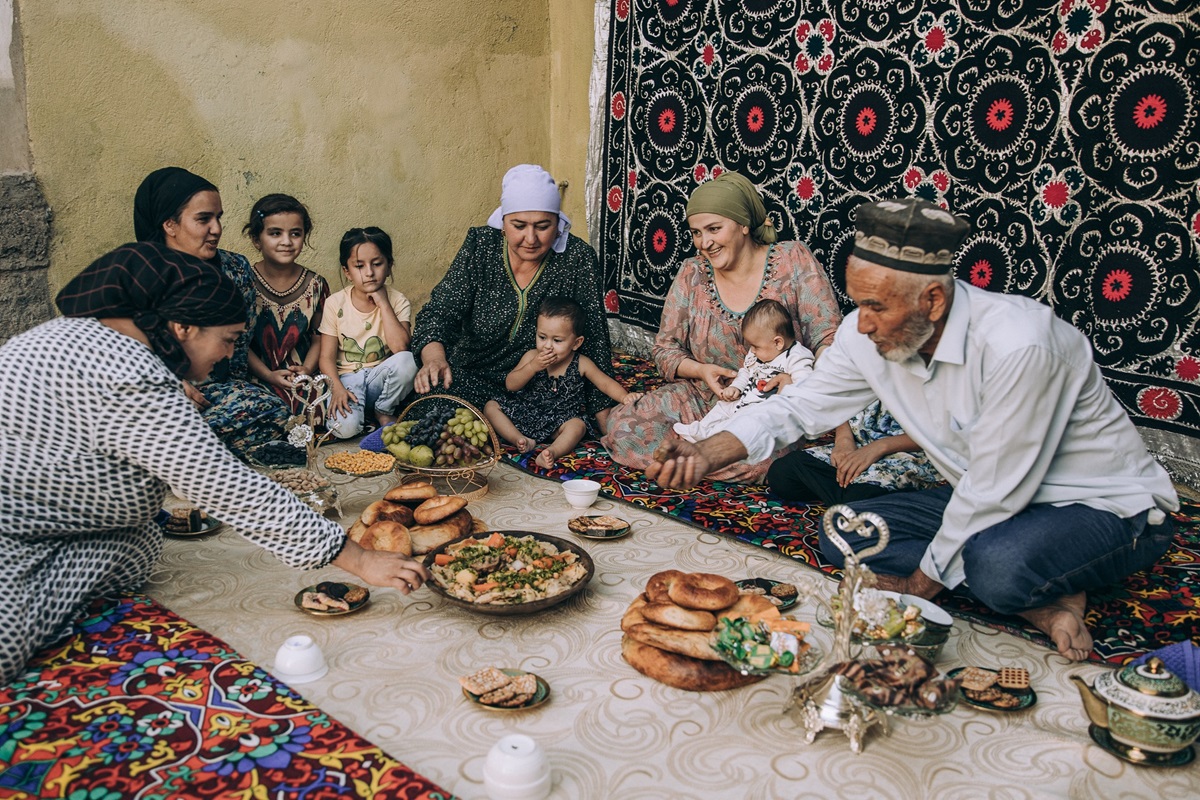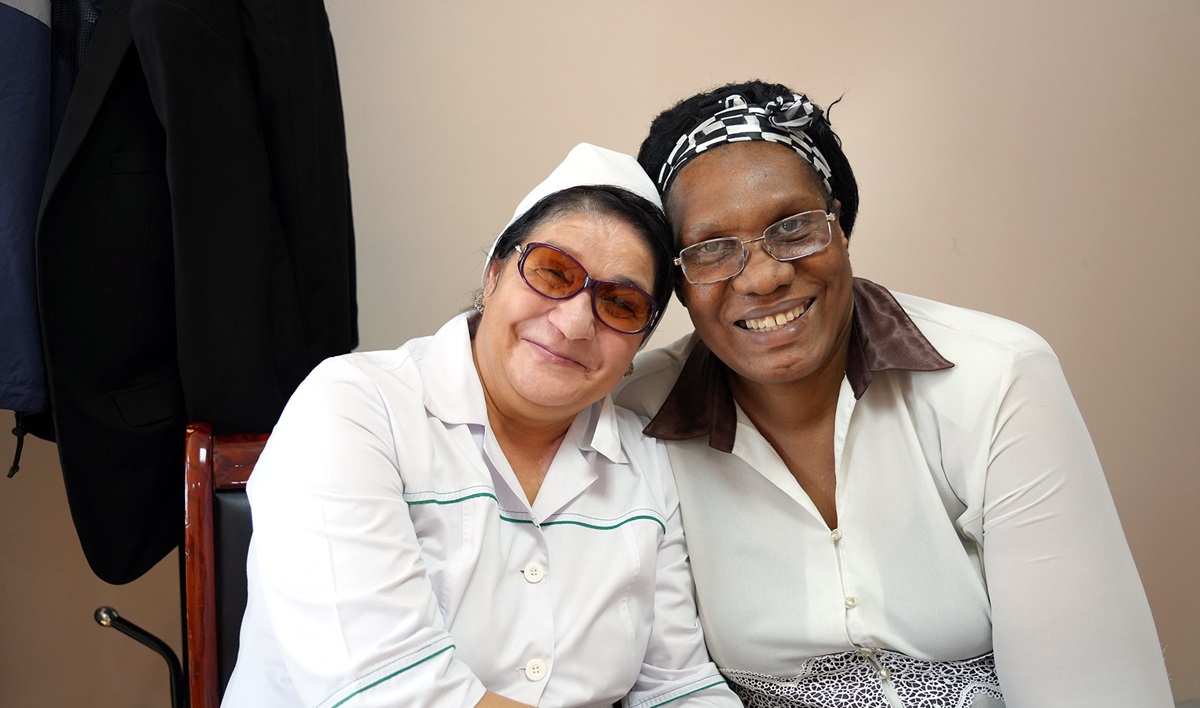No images? Click here
Another good reason to vaccinate – to keep life-saving medicines working
25-04-2024
Vaccination is a key component in any strategy for the control of antimicrobial resistance (AMR) and is highly effective in preventing diseases that might otherwise lead to the use of antimicrobial medicines, such as antibiotics. In WHO’s core package of interventions to support AMR national action plans, vaccination is listed as a key intervention. Suboptimal access to vaccinations and missed vaccine doses reduce the potential impact of vaccination in controlling AMR. WHO encourages policy-makers to align vaccination and AMR control strategies and is supporting Member States to achieve this. “Vaccination is a key part of AMR control, not just a nice-to-have,” explains Dr Danilo Lo Fo Wong, Regional Adviser on AMR at WHO/Europe. “Vaccination is effective in preventing infections and has multiple benefits for AMR control.
World No Tobacco Day 2024: protecting children from tobacco industry interference
31 May 2024
This year, once again, WHO and public health champions from across the globe will come together to raise awareness about the harmful influences of the tobacco industry on youth. This theme is focused on advocating for an end to the targeting of youth with harmful tobacco products. This discourse provides a platform for young people, policy-makers and tobacco control advocates globally to discuss the issue and to urge governments to adopt policies that shield young people from the manipulative practices of the tobacco industries.
ARMENIA REFUGEE RESPONSE
WHO’s Armenia refugee health response – 6 months on, critical health needs continue
26-04-2024
COVID-19
“There is one certainty: there will be another flu pandemic in the future,” an expert warns
30-04-2024
COVID-19 Lessons learned: WHO/Europe launches the first Pan-European Network for Disease Control
22-04-2024
Increasing Recognition, Research and Rehabilitation for Post COVID-19 Condition (long COVID)
WHO remains committed to learning more about long COVID and to finding ways to improve the medium- and long-term outcomes for people affected by it.
Partnering with the European Union to support deployment of COVID-19 vaccines and vaccination
The EU and WHO/Europe together provide critical assistance to Member States of the WHO European Region to ensure local readiness for safe and effective vaccination campaigns against COVID-19
UKRAINE EMERGENCY
FEEDCities research
project: building capacity and eliminating trans fat in Ukraine
23-04-2024

03-05-2024
No matter the context or country, midwives across the WHO European Region operate in diverse work settings and situations that require them to adapt their knowledge and expertise to deal with the unexpected, to ensure the best care for mothers and babies before, during and after birth. “Midwifery is a vital solution to the challenges of providing high-quality maternal and newborn care for all women and newborn infants, in all countries,” says Maggie Langins, Technical Officer at WHO/Europe. “But midwives must be well-trained, properly supported, and the profession fully regulated.”
New policy brief: sustainable behaviours for health and the environment
28-04-2024
New WHO collaborating centre for understanding and detecting diphtheria
25-05-2024
Developing healthy cities in 20 steps: new WHO course launches
25-04-2024
Exploring the digital health landscape in the WHO European Region: taking a closer look
17-04-2024
One step closer to making novel medicines more accessible
15-04-2024

22-04-2024
The establishment of the Expanded Programme on Immunization (EPI) 50 years ago was a pivotal moment in the history of public health and has saved millions of lives globally every year. In 1974, only 5% of the world’s children had been vaccinated against diphtheria, tetanus, and pertussis. Today, that figure has increased to nearly 85% of children worldwide and 94% in the WHO European Region. Just 5 years after the introduction of the EPI, smallpox was eradicated. Since then, the geographic range of wild poliovirus has been reduced to just 2 countries, and the threat of several serious infectious childhood diseases has decreased dramatically. Continued innovation in the field of immunology has led to the development of vaccines that can protect against even more diseases, opening the possibility in the Region to eliminate hepatitis B and cervical cancer in the near future. While we celebrate these monumental achievements, which have protected the health of multiple generations, we remain in the wake of the COVID-19 pandemic and its unprecedented impact on our societies and economies, health systems and health-care delivery.

30-04-2024
“Some of my colleagues are a bit confused,” confesses Dr Rosa Nodirshoeva, who is known here simply as Dr Rosa. “We have not had any cases of sepsis for a few months now. They find this unusual,” she adds, smiling at her collaborator, Dr Joyrine Biromumaiso, before declaring, “but you and I, we know the reason.” Dr Rosa shifts comfortably in her chair. She has an air of authority about her. This suits her position as a senior doctor at the large Maternity Hospital Number 1 in Dushanbe, Tajikistan. Dr Rosa has worked at the health facility for over 30 years and knows it like the back of her hand. She works closely with Dr Joyrine, an expert on infection prevention and control based at the WHO Country Office in Tajikistan. Today they are discussing how much has changed since the start of their close collaboration, just over 3 years ago.
Digital prescriptions – good for patients, good for prescribers and good for dispensers
02-05-2024
Midwifery through the eyes of 2 generations: perspectives from Hungary
02-05-2024
Kyrgyz runners show dedication to an active lifestyle on World Health Day
26-04-2024
A lifelong commitment to ensuring children receive the care and protection they deserve
22-04-2024
Portugal proposes integration of prison health into its National Health Service
18-04-2024
The Netherlands paves the way for improved prison health policies
15-04-2024
Eluned Morgan appointed WHO Champion for the European Well-being Economy Initiative
10-04-2024

EVENTS
International Nurses Day
12 May 2024
European Public Health Week 2024 webinar: “How do you do co-creation in mental health?”
14 May 2024 10:00–11:30 CEST, online
Launch of the Strategic Partners’ Initiative for Data and Digital Health
13 June 2024, Copenhagen, Denmark
Summer school: Systems thinking and innovation for the prevention of noncommunicable diseases and a healthy ageing population in the WHO European Region
16 – 19 July 2024, Nice, France
15th conference of the European network for the promotion of health-enhancing physical activity (HEPA Europe)
19 – 21 August 2024, Dublin, Ireland








